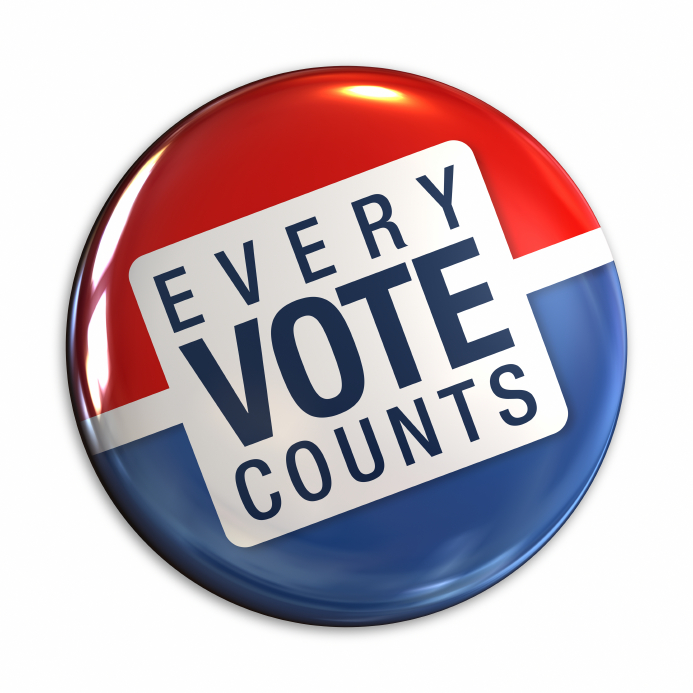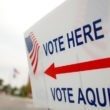 Apologists for the decision made by the Unfab Five of the Supreme Court to fish-gut the Voting Rights Act are claiming it only affects a few states and has limited impact.
Apologists for the decision made by the Unfab Five of the Supreme Court to fish-gut the Voting Rights Act are claiming it only affects a few states and has limited impact.
That’s wrong.
A trend has been very clear since 2000. Court rulings are shifting our nation away from the limited progress that expanded voting rights in the last 100 years to the bad-old days when voting was really just a privilege among an elite few. Here’s a little history lesson.
Our 21st-century rights are limited by an 18th-century constitutional debate over the power of citizens and whether they should have full rights to rule by ballot.
| What should progressives do about the fact that voting is not a constitutional right? |
While a very few in 1787 thought “right to vote” should be written into the Constitution, it wasn’t going to happen: New England might let blacks vote and Southern states wouldn’t stand former slaves exercising power.
In 1787 nearly all states excluded white males who did not own property from voting because the landed gentry didn’t want pesky laborers or indentured servants picking leaders. The founders sought more restrictions to limit citizen participation by prohibiting direct election of all federal office holders, except the House of Representatives.
So it wasn’t exactly “We the People,” despite the hype.
And since there was no basic right to vote, those in charge could focus on process (i.e., elections rules) which enabled them to better control the outcome—and the courts backed them up.
For instance, the longstanding power of officials to examine presidential ballots. That was a boon to the Jim Crow South, where any citizen who dared vote for a Republican could expect a visit from the local sheriff. In 1952, South Carolina became the last state to bar officials from examining presidential ballots but only because the legislature decided to end the practice. Before then, the courts had upheld ballot inspection.
So the whole “rights” vs. “process” debate finally came to head in 1892, in a landmark ruling that was the basis for Bush v. Gore. Ironically, that ruling was in favor of a Michigan law expanding voting rights in presidential elections—but it was legal, the high court said, only because state legislatures have the sole power to appoint Electoral Colleges. That Court went so far as to say voting isn’t necessarily a function of citizenship.
That case served as the rationale for the Republicans’ failed attempt to re-write Pennsylvania’s electoral college rules so a Republican would always win, no matter who won the popular vote.
Hold on, you cry! Don’t several amendments mention voting and thus assure the right of blacks, women and anyone over the age of 18 to vote?
Well, yeah, but consider the fate of 14th amendment, which gave black males (women would be excluded for another 52 years) the right to vote: thanks to process, those rights weren’t enforced for over 100 years and thanks to the Supreme Court, enforcement is still dodgy.
| Move on many fronts and force the opposition to explain why having no right to vote is a good thing. |
And while the majority and minority in Bush v. Gore recognized that “equal protection” should apply to elections, there is no standard.
Thus, in the last election, the Supreme Court blocked a plan by Ohio Republicans to limit early voting, while an appeals court allowed Texas to effectively ban voter-registration drives.
Worse, because of Republican spin on “voter fraud,” too many Americans think it is just about showing a photo ID on election day, not realizing the fine print of these laws often give election officials extraordinary power to prevent your vote from being counted—even if you show a legitimate photo ID.
Hell, you don’t even need laws to screw things up: officials in Maricopa County, Arizona, twice issued information to Spanish-speaking voters that had the wrong date for election day.
So what has been the progressive response?
Proposing a constitutional amendment for a “right to vote” has not only failed repeatedly in the past 160 years, it fails to inform voters why they don’t have a right they assume they do have.
Instead, let’s keep it simple.
Move the fight to many fronts in both the Congress and state legislatures by proposing bills, budget items, even non-binding “sense of” declarations to educate the citizens that they do not have a right to vote, and force the opposition to explain why that is a good thing.
Take, for example, a “sense of” Congress resolution that reads something like this:
RESOLVED, that every American has a fundamental right to vote for ALL political offices (including the Presidency of the United States) and that no one has the right to restrict any citizen from registering to vote or casting a legitimate vote and that election officials that fail to provide voters with accurate information be subject to criminal sanctions.
I would love to hear Mitch McConnell tell us why that’s unreasonable.
Peter Lindstrom is a political consultant and researcher. He lives in Washington, D.C.






0 Comments